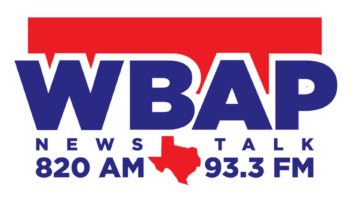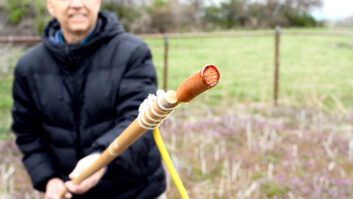
iStockphoto/Adam Kazmierski Ah, autumn. There has never been a more important time to provide radio listeners and advertisers with quality local sports play-by-play. And yet, I’m constantly amazed by the garbage I hear when some local stations try to do this.
Local sports play-by-play is a key programming component on many radio stations. Even where live announcers, local news and pretty much everything else have been sliced out of the budget so the station can stay afloat, there are always sponsors for play-by-play.
So it is a wasted opportunity when stations simply cast the net for sports boosters and throw a game on the air. Local sports play-by-play is something no other medium can reliably offer. And here’s the dirty little secret: It isn’t that hard to do.
Listen up, managers: Here are some ways to pull off play-by-play events that are both outstanding content providers and dependable revenue producers. Some of these pointers are technical; the others are all attitude.
Unforced errors
I’ve been a play-by-play announcer on radio and TV for more than 40 years and I’ve announced the games of everyone from local Pee Wee to Major League Baseball and the NHL. Along the way I’ve absorbed lots of ways of bringing off smooth, professional broadcasts and creating meaningful revenue from them. I’ve also seen and heard a lot of things that made my skin crawl.
How many times have you heard these listener punishers?
·Poor sound mixing: All eyes and ears seem to be on the game and none on the remote mixer’s audio meter and faders.
·Cell phone or RPU backhaul sounds rubber-band-narrow and there are all kinds of nasty artifacts, creating enormous listener fatigue.
·Announcers step all over each other.
·Every play sounds either like a walk-off home run in game seven of the World Series, or…
·I can tell who’s winning by the enthusiasm or obituary-type gloom of the announcers’ voices.
·No one seems to be running the board — levels are all over the place (regardless of limiting), commercials don’t get played on cue and joins are either late or come in mid-sentence.
Come on. Advertisers deserve listeners and listeners deserve something they can enjoy without mental fatigue.
Knock it out of the park
Providing play-by-play broadcasts that listeners can stay with all the way through, which advertisers will want to sponsor, as I’ve said, isn’t impossible or even difficult. But you have to want to do it right. Here are 10 ways to turn your local play-by-play presentations into pleasurable, profitable events rather than costly tuneouts:
1. Teach the tech
If you’re not technically oriented, have someone who gets it to drill your sports announcers on how to set up equipment and run it right.
This means riding gain on everything all through the game. Their job is to produce a broadcast, not act like overgrown jocks who are too absorbed in the game to pay attention to making it sound good.
That means keeping an eye on the audio meter (and please don’t equip them with those remote mixers that don’t even have meters). It means keeping a hand on or near the mixer at all times for sudden modulation of voices and crowd noise.
2. Make sure you’re plugged in
There is no weaker excuse for a failed broadcast than, “My equipment didn’t work.” Really? And when did you discover this? When you went on the air?
Remote kits can be invisible when they aren’t being used. They’re often stored on a shelf or under a desk (or, God help us, left in a sportscaster’s trunk) until they’re needed again.
And here be gremlins: A cord that worked perfectly the last time out can mysteriously develop a short. A mike plug that’s been fine for the past decade suddenly decides it can’t pass audio. And what’s with these stinkin’ batteries?
Make sure your sports talent—not just the engineer, if any, but the play-by-play announcer—regularly takes everything out of the sports kit and makes sure it all works.
3. In case of emergency…
There is a lot more to being a successful sports announcer than the ability to grow a goatee, wear a hat backwards and rattle off stats and opinions. The really good announcers, the ones who last a long time in local radio, are solid trouble-shooters and fixers.
That is, they learn enough about how their gear is supposed to work to be able to fix it.
Can your play-by-play announcer solder an XLR plug while on the road? Why not? I’ve saved many a broadcast out in the field by repairing small items in press boxes and motel rooms. It ought to be a tool of the trade, and here’s how I learned: I asked an engineer how to do it, and he gladly showed me.
I’m no techie, but I get on the air. And so do my sponsors.
4. Looks matter
When did it become perfectly acceptable for announcers to show up at games looking like they were going to a sports bar? The days of matching blazers and ties for radio crews are long gone, but is it too much to ask you to shave? Wear slacks instead of jeans? A nice shirt instead of a sweatshirt?
People do notice these things. A coach once surprised me by taking me aside and saying, “Thanks for dressing right when you come here. It shows respect for us and the game.”
Sure, you can wear school colors if that floats your boat. But more importantly, don’t go out there dressed like a slob.
5. There are two teams in this game
No matter how tempting it may be, overtly rooting for the home squad is unprofessional.
It’s fine to be more excited when your team scores than when the other guys do, but get a grip. Here’s what a homer essentially is: a liar. He or she makes routine plays sound like tournament-winners. He or she rips the officials. He or she whines about the opponent.
The paying customers can do that. Professional play-by-play announcers shouldn’t.
Please don’t say, “But you don’t know my market.” I understand the realities of local-market radio very well and here’s a promise: No one who matters will ever criticize a play-by-play announcer for reporting professionally and enthusiastically without being a homer. No one.
Learn both the names and the stories of the other team. People crave entertainment and there are loads of great stories in every game that don’t involve the home team.
6. Commercials matter.
Radio is a lot of things, but in order to exist, it has to be a money-making venture. Sports pays the bills at many stations.
7. Include the play-by-play announcer in sales calls.
If he or she isn’t already selling for you, his or her enthusiasm can help close a sponsorship deal. This trick isn’t for every prospect — or for every sportscaster — but if you have one who can make an intelligent, planned contribution to a sales call and then shut up, why wouldn’t you include this valuable, little-used tool?
8. Talk about the game on the air — a lot.
We live in a vastly divergent multi-media world where simply running a few promos for the Sports Booster Club doesn’t cut it. In this universe of short attention spans, your announcers should be talking up your coverage of a game as often as possible.
After the game, cash in on the fact that, in most cases, only you were there to cover it, not the all-music jukebox down the street.
Stream it.
Use highlights the next day and in future promos. Email them to your sponsors and prospects.
Get some mileage out of those play-by-play events!
9. There’s no such thing as an unimportant game.
I started my career by doing the seemingly humble Little League double-header of the week, lugging the Marti six blocks each way because I wasn’t old enough to drive. Those games meant a lot to the kids who played them, to their friends and relatives at home and, of course, to me.
Every game deserves the best-prepared, best-sounding broadcast you can provide.
10. Drive listeners and revenue to your website.
Want compelling, original content that changes regularly? It’s hard to top play-by-play. While your pro and college networks won’t let you stream their games, nobody controls your local events but you.
Make the most of it: Stream your games. Have your morning show do features and interviews that are website-only events. Sell separate sponsors for your online broadcasts and replays.
Hey, you’re the creative, revenue-driving monster around here. Whether you’re covering a state champion or a perennial also-ran, community spirit — and sponsorship bucks — depend on whether you treat play-by-play as an obligation or an opportunity.
Doug McLeod is a longtime major league play-by-play announcer who started broadcasting Little League games at age 15 because they were sold and no one else wanted the gig.











